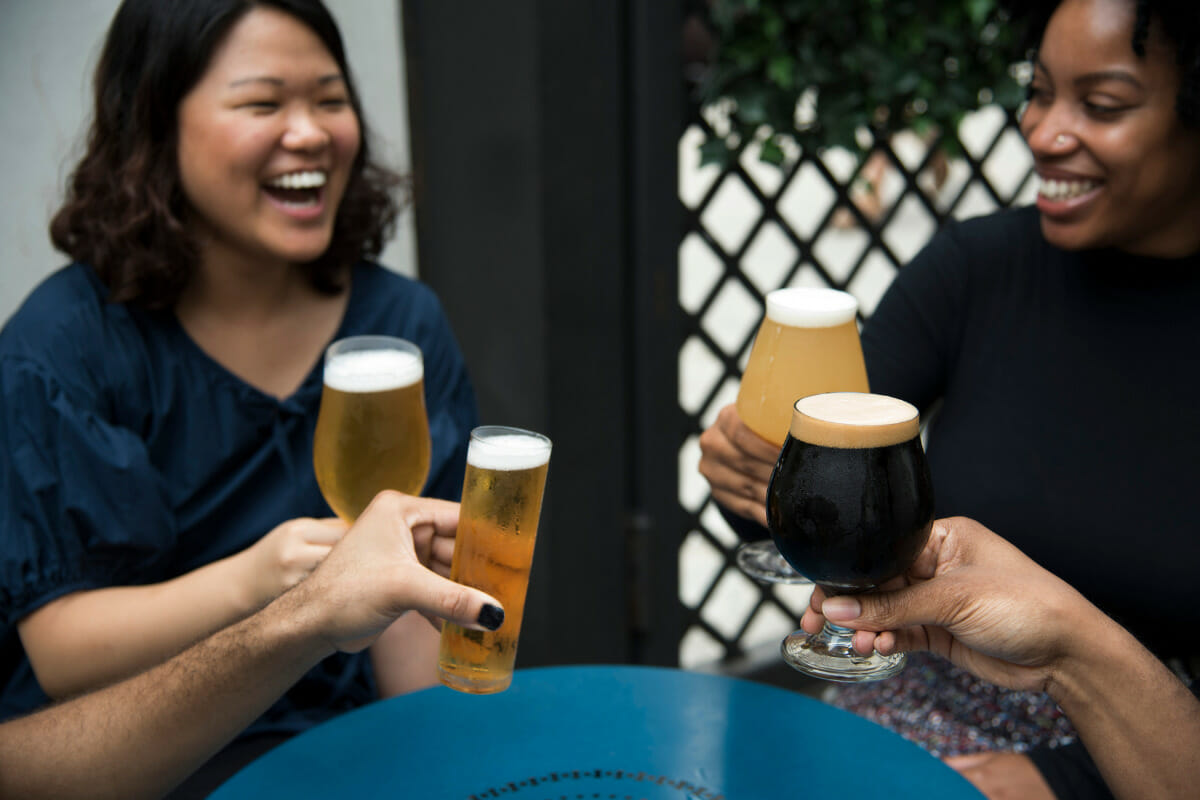10 Signs You’re Drinking Too Much
How much drinking is drinking too much? Although many Americans begin drinking while still underage, there is a shockingly limited amount of education around drinking responsibly. Many people feel it is acceptable to drink as much as they desire until they blackout. But this certainly isn’t the case.
Binge drinking has serious physical, mental, and social consequences that can completely unravel your life without you even noticing. Drinking levels may have increased more recently due to added stress, depression, or anxiety. Or you may be a person who only drinks heavily when they go out or are with friends. But then you realize you are consuming extreme amounts after waking up the next morning, forgetting what happened the night before.
Drinking too much can lead to the development of alcohol dependency and alcohol use disorder. This is a physical and psychological condition that can become a lifelong battle. These are 10 signs that you may be drinking too much and how you can seek help if you need it.
#1 Exceeding Your Limit
If you start to question your alcohol consumption, it’s normal to set boundaries and cut back. But if you frequently find yourself upping your limits to “just one more” or being unable to stop once you start drinking, you might be developing a substance abuse problem.
#2 People Are Talking
You and your friends might joke about how much you drink. Maybe they may throw some seemingly innocent comments about your drinking habits but are they really genuine thoughts. You may even have someone tell you that they are worried about your drinking, softly suggest you hold back or recommend you “switch to water.” Take notice of how those around you perceive you and take to heart the things they’ve pointed out when you drink. Are there any common themes? If so, it may time to start to ease up on your drinking.
#3 You Anger Easily
If your first reaction is to become defensive when someone brings up your drinking, ask yourself why. We often experience emotional reactions before we fully process where they are coming from. Being quick to anger over someone talking about your drinking could indicate you are wrestling with negative feelings toward it yourself. Are you feeling guilty, embarrassed, out of control? These are all underlying thoughts people have, and addressing them with anger may be the visible symptom.
#4 Alcohol Equals “Feeling” Better
Whether it is to cope with social anxiety or alleviate stress, if your go-to for unwinding is alcohol, you may be developing a dependence on it. When “I need a drink” is a common thought you have when challenging emotions bubble up, and it happening more often than it used to, it’s time to think about your relationship with alcohol.
#5 Legal Trouble
Whether it’s a DUI, getting kicked out of a bar, or getting arrested for something you did under the influence, it means drinking has become a problem. Alcohol consumption that leads you to do things you typically wouldn’t is concerning. You are reaching a level that is both dangerous to your immediate well-being and those around you.
#6 Social Problems
Do you become more promiscuous when you’re intoxicated? Do you say things you would otherwise keep to yourself after a few drinks? There are many ways that alcohol impacts the brain, with over-drinking social consequences lasting long after your last drink. Rather than looking solely at how much you are consuming, ask yourself how your drinking affects your way of acting and your relationships with others.
#7 You Think About Drinking
A social agenda mostly revolving around going out to drink or staying in and having some drinks by yourself can lead to alcohol abuse. However, you begin to think about when you can drink again, whether you drank too much last time, or how you can be different the next time you drink is another level indicating a problem may be developing. If alcohol is becoming increasingly present in your mind, then you might need to seek professional help.
#8 More Drinks More Often
You might find yourself making excuses to drink during the day when you used to only drink on the weekends. Maybe you are getting excited to have brunch because it allows you to drink in the morning without drawing attention to yourself. Changes in your drinking pattern suggest you may be losing control over your alcohol consumption, even if you think that you’re consciously just deciding to drink more.
#9 Smaller Social Circle
How many social events have you had recently that didn’t involve alcohol? Are you drawn more to the people you know to drink just as much as you? Changes in your social circle suggest you are more interested in what they let you get away with than who they are as people. Pay attention to the way your mind might try to justify heavier drinking.
#10 You Feel Like You Are Drinking Too Much
You know yourself better than anyone. Deep down, if you feel like drinking is negatively affecting you, then it is. Has alcohol become more important than things you used to care about? Is life no longer as exciting, interesting, or worthwhile when you aren’t drinking? These types of feelings do not mean you are a failure. Alcohol can quickly become a problem for anyone, even those who were happy before drinking more.
Reach Out For Help Today
Addressing the above symptoms, you may be facing with alcohol is the first step toward breaking the cycle. If you or a loved one struggles with drinking too much, seek professional help from your doctor or contact Silver Sands Recovery today.


